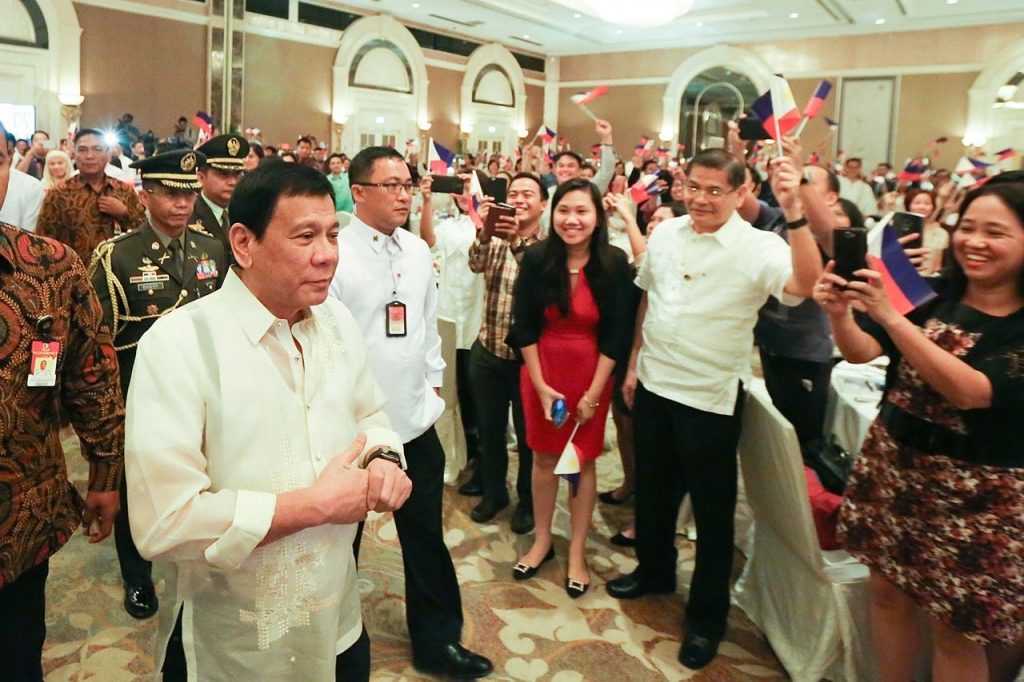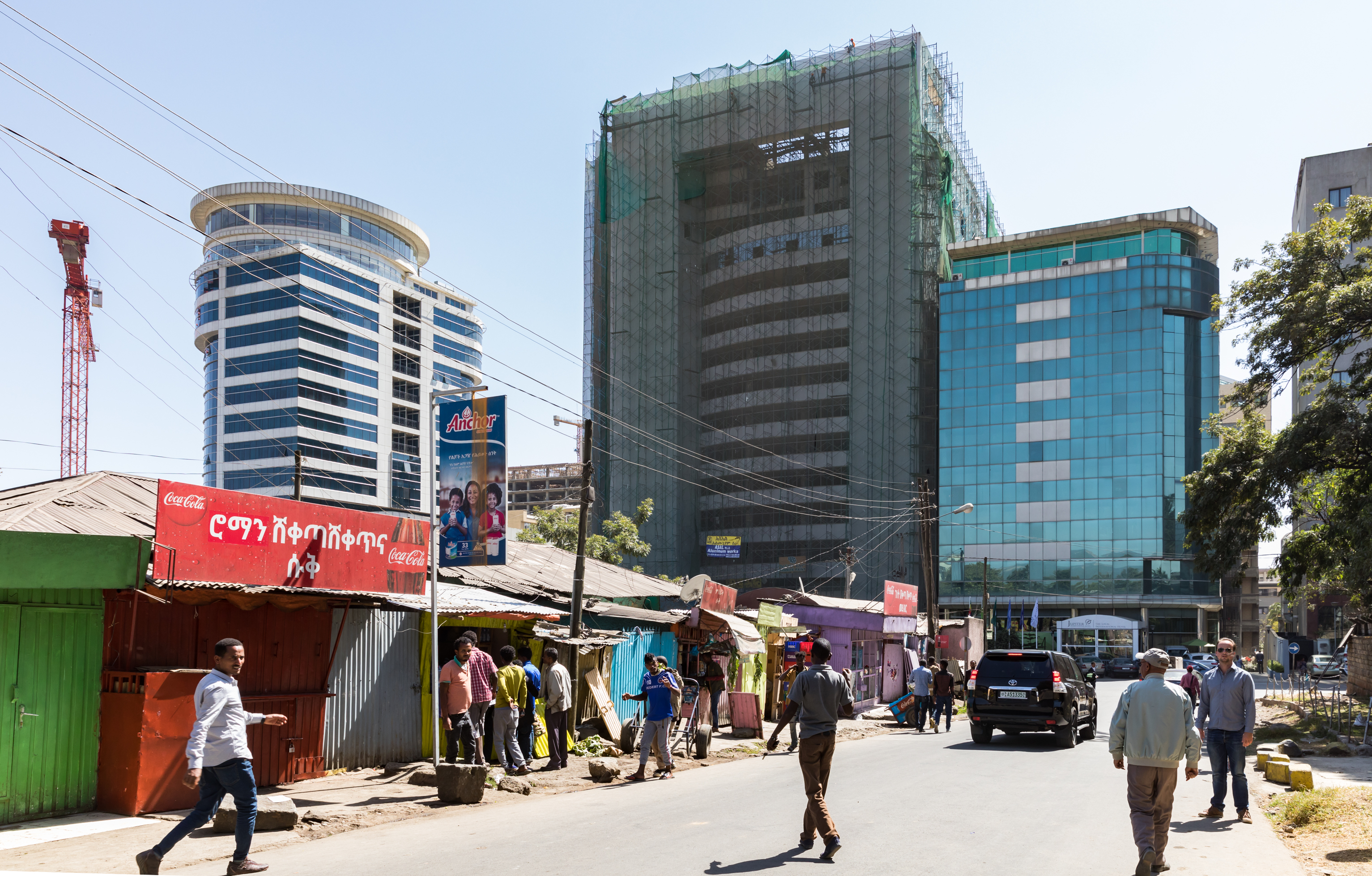Yesterday, the vice president of the Philippines, Maria Leonor Robredon, accepted President Rodrigo Duterte’s offer of a lead role on his brutal crackdown against drugs. Department alumni, Arbie Baguios, Rebecca Kong, Larissa Phillips, and Andrew Mahon, question whether ineffective monitoring could be the drive behind Duterte’s deadly war on drugs.

Rodrigo Duterte won the 2016 Philippine presidency not just through a concerted disinformation campaign, but also through his populist platform to fight criminality and illegal drugs.
But while the policy design is utopian (“If elected president, give me about three to six months, I will get rid of corruption, drugs and criminality”), the policy implementation is dystopian. The war on drugs has thus far led to an estimated death toll of 27,000 people as of October 2019 (nearly ten times the three thousand deaths during the period of Marcos’s Martial Law); extreme human rights violations that warranted an investigation from the International Criminal Court and the UN human rights council; and a backsliding from the gains on poverty reduction achieved over many years.
But what drives the drug war?
The answer lies behind the political economy behind the drug war’s bureaucracy.
Perverse incentive structures
Duterte has earned the favour of the Philippine National Police (PNP) by increasing the agency’s budget. For instance, Duterte approved a PHP (Philippine pesos) 131.6B budget for the agency, which is nearly double what former President Aquino had allocated to them.
At the same time, the police received a hefty financial bonus for meeting “performance” targets, including number of suspected drug users killed. They receive between P8,000-20,000 (USD 160-400) for a “street level pusher and user”, up to PHP 1,000,000 (USD 20,000) for “distributors, retailers and wholesalers”, and up PHP 5,000,000 (USD 100,000) for “drug lords.” Police officers are paid low (as little as PHP 15,000 per month or USD 320, which is less than half the monthly GDP per capita), and so these financial rewards create a strong incentive.
Combatting illegal drug use through arrests and due process is crowded out by the multitasking effect. Because incentives for killing drug users are high and indicators are easily measurable, police officers are systematically encouraged to focus their efforts on these tasks and neglect others, including arrests or even cooperating with local government units for the rehabilitation of surrendered drug users.
There’s also money to be gained outside the agency. For example, police sometimes collude with funeral homes. According to a police officer interviewed by Amnesty International, “The police get a cut from funeral homes for every body they bring.” These costs can then make it more expensive for poor families to retrieve their loved ones’ bodies.
The relationship between Duterte and the PNP demonstrate a case of the ally principle. Police have an intrinsic motivation to address the country’s drug problem. Duterte capitalises on this motivation, frequently urging them to “clean up the streets.” This creates a norm within the PNP where “police officers are trying so hard to please the President.” Because of such strong norms within the PNP, officers who disagree with the President may fear being branded as an opponent and then lose their jobs, or risk even becoming a target themselves
Poor top-down monitoring and accountabilit
The government’s drug policy includes ex ante regulations that in theory should promote positive policing behaviouir. For example, the Dangerous Drugs Board guidelines states, “The conduct of house to house visitation must be done in a manner that shall not violate the rights of the subject.” The PNP even developed a mobile app that reminds police officers to uphold human rights. But because perverse incentives are stronger, these are simply ignored.
The policy also includes ex post monitoring mechanisms through the PNP Oversight Committee. Although, as mentioned earlier, the committee uses control instruments to reinforce the norm of killings and abuses: they punish those who are deemed to ‘underperform’ (as measured by killings).
The ineffectiveness of ex post monitoring is also demonstrated by the failure of the PNP Internal Affairs Services (IAS) to incriminate police officers for improper conduct. An Amnesty International report in 2017 found that the IAS – which is meant to be an “institutional watchdog agency for the PNP”– has not dismissed a single police officer for misconduct, effectively granting police officers impunity.
The legislative branch, which is meant to provide a check on the executive’s power, remains ineffective. Duterte is politically popular, which means elected legislators would want to be his ally; and he is politically powerful, silencing dissenters like Senator Leila de Lima, an outspoken Duterte critic who was sent to jail. Duterte and his policies also enjoy high approval ratings from citizens.
Another external monitoring agency, the Commission on Human Rights (CHR), faces significant obstacle. The President often rebukes the CHR, and earlier in 2017 a Duterte-backed House of Representatives tried to pass a budget that gave CHR a mere PHP 1,000 (USD 20).
Unresponsive bottom-up approaches
On paper there are many channels for citizens to hold the government accountable: a 24/7 police complaints centre; the courts; a government complaints hotline; and the Philippine Law Enforcement Board, which deals with local police complaints. But many people – especially those coming from poor communities – often don’t know these mechanisms exist, or are hindered by complex complaint procedures and fear of police retaliation.
People have also turned to international actors, such as the UN Human Rights Commission. But the Philippine government often discredit these international organisations, and their influence on national policy remains is not significant enough to drive a policy change.
While the Government’s drugs policy include local community participation, it receives marginal attention relative to the killings. Cooperation with local communities (for example, in rehabilitation programs for those who voluntarily surrender; or in complaints and feedback mechanisms) are actually mandated by the government. But such mechanisms are flawed (e.g., anonymous drop boxes for suspected criminals are unaccountable), and community initiatives are grossly underfunded.
Local communities also find it difficult to obtain documented evidence, as police often meticulously plan their executions – unplugging security cameras, turning off street lamps, and planting guns and drugs.
Paying a price
Analysing the political economy of Duterte’s war on drugs reveal how perverse incentives combined with ineffective top-down and bottom-up monitoring drive extrajudicial killings. And while Duterte enjoys political approval for his bloody war on drugs, it is the poor who pays the highest price.
Arbie Baguios (MSc IDHE ‘18), Rebecca Kong (MSc Development Studies 2018), Larissa Phillips (MSc Development Studies ’18), Andrew Mahon (MSc Development Management ’19) are all LSE alumni currently working in the development and private sector.
The views expressed in this post are those of the author and in no way reflect those of the International Development LSE blog or the London School of Economics and Political Science.





